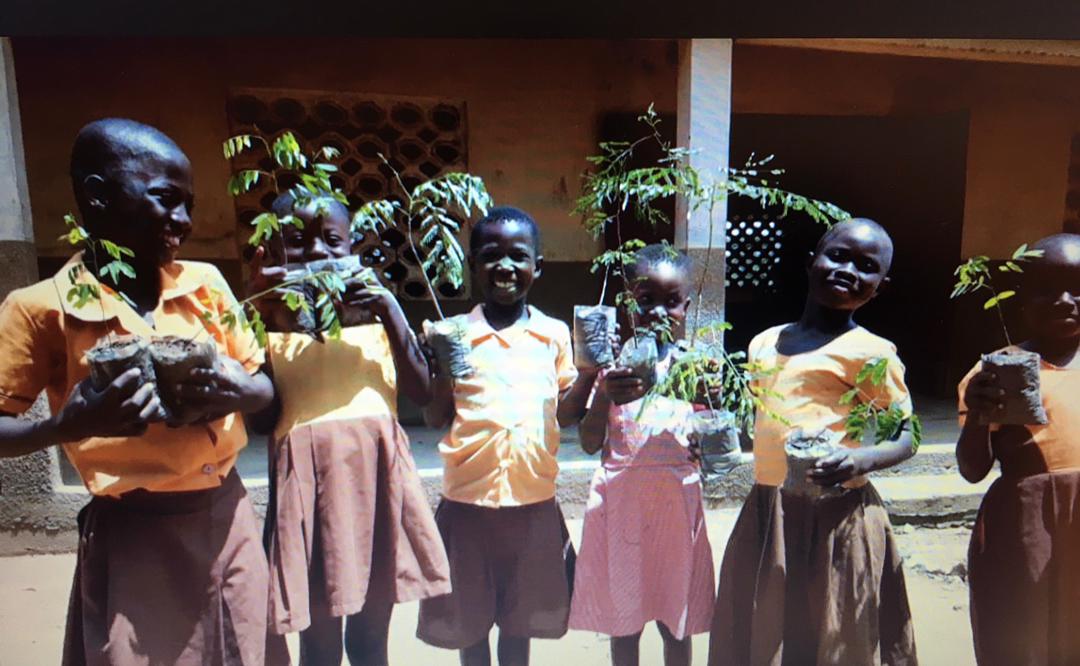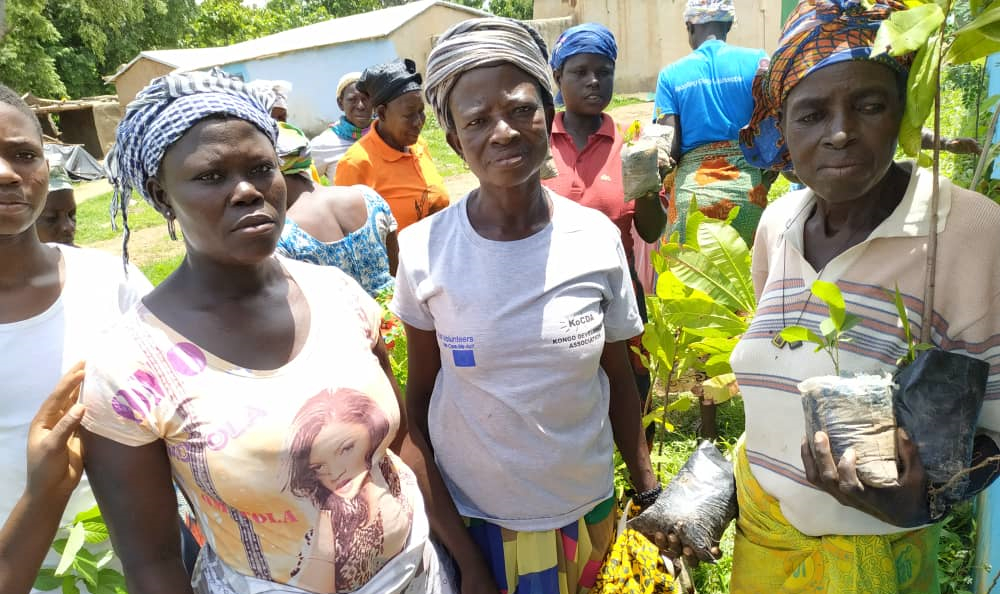Ten years ago, I received a letter from Linda from Latvia, who had been in Guatemala for a long time. She often visited the mountainous village of Chahabal, about a 30-minute drive from Guatemala’s second largest city. Seeing how difficult the daily life of Chahabal’s children is, she invites her friends to donate to buy chickens, clothes and school supplies for their families.
I decided to help Kate, a little girl who lived with her mother and grandmother. I knew that without support, Kate would probably not go to school, but work. In most situations, when boys have to choose between sending boys or girls to school due to lack, boys are preferred. It seemed important that little Kate had the opportunity to get an education and choose her own way of life in the future. When I was asked why I was financially supporting a girl in a remote Guatemalan village, I replied that there could never be too many educated women in the world. At that time, I did not yet realize the importance of women’s education in mitigating the global climate crisis.
Education and overcrowding
A couple of years later, I went to the island of Sumatra in Indonesia to make a documentary about poverty and its impact on children in North Sumatra. The locals once invited us to spend the weekend in a jungle village by the river. Promised beautiful bathing in an environment surrounded by jungle, which later turned out to be local tree biodiversity depleting rubber plantations. I spent the night in a hut of a hospitable family, where we all lay on the floor in a friendly way. A housewife with a baby was lying near me, and in the other room – her other four children.
Surprised by the bedtime conversations, I discovered that the mother of five children is only 23 years old and she is already carrying the sixth offspring under her heart. Seeing poverty and hearing despair about the difficulty of feeding the children, I suddenly realized that the housewife had no idea how to avoid pregnancy. Tired, she talked about wild spirits to protect. Before my eyes that night was what we usually read in the booklets of global environmental organizations: the problem of overcrowding stems from women being denied access to education.
In the village of North Sumatra, working with children.
Photo: Eva Johansone’s private archive
–
–
At that time, seeing five small children and a tormented mother, I realized how self-evident education in Latvia seems to us. It is available to us free of charge, without gender restrictions and other barriers. In the morning, I arranged an appointment with the housewife with a doctor, who not only looked at her sick baby, but also told about contraception.
In times of crisis, the burden on women is enormous
At the moment, I hear the outrage among my friends that the burden of the Covid-19 pandemic falls mostly on the shoulders of women – they have to educate their children, prepare to eat, clean the house and at the same time be able to do their profit. On social networks, I read various tips every day on how to maintain the mental well-being of mothers in these circumstances.
As with the current pandemic, the effects of climate change – droughts, floods, storms – affect women in poor countries the most.
They have a duty to supply water in areas where water is difficult to access. Women drop out of school to provide food and take care of their families. She stays in place in conflict zones caused by a lack of natural resources, while men go to other countries for profit. When men fall asleep, women stay because someone has to continue to take care of the children.
Resource struggle
Of course, women also migrate, and their stories are unenviable. I once met Mbom from Senegal as part of an international youth exchange project. Together with other peers, we participated in a volunteering seminar so that later everyone would go to volunteer work in the chosen country. She had to travel to Barcelona from Senegal a few months later to work in the local eco-community. At the next meeting, Mbom was no more.
It turned out that after the joint seminar, she went back to her homeland, adopted a child to come to Barcelona, give birth to it and apply for a permanent residence permit in Europe.
Mbob’s plan went smoothly, as she managed to hide her pregnancy in Barcelona for a long time, but a roommate had accidentally noticed Mbom’s swelling belly under the layers of her traditional dress and announced the pregnancy to the project coordinators. It was decided to send the Senegalese back to their homeland. Upon learning of this, Mbom left the house in slippers and a nightgown and disappeared without a trace. Neither her family nor Interpol found her. The latest news came from France. We knew that Mbom was not easy in Senegal, but how desperate did it have to be to dive into a foreign Europe without acquaintances, money, belongings while waiting for a baby? Nothing more is known about her fate.
Floods, droughts and helplessness
Looking at the screen, I see Victor telling in a sun-heated African village that the rains of his childhood began now – in March. But now the land is dry, dusty and difficult to cultivate. Victor lives in a small village in the north of Ghana and has experienced drastic climate change in his life during his lifetime. Compared to Latvia, where we feel the threat of climate moderation, the African zone, where Ghana is located, like the polar regions, are the first to see climate change – glaciers are melting in the Arctic, extreme drought in Ghana alternates with floods. Victor kindly agrees in a WhatsApp call to tell us what he has experienced over sixty years and why he runs a local community organization, caring for trees and supporting local women.
“At the age of ten, I knew for sure that the rainy season would start this month and the trees would turn green. Right now, talking to you, I don’t know when it will rain.
Probably only in May, June or even July. Precipitation will be erratic and devastating floods are likely to recur in September. Women suffer the most. Many of them lose their homes, animals or even their lives in the floods, ”says Viktor about the drastic changes in the rainy season.

Viktor educates students about the importance of trees in their village.
Photo: Victor More
–
–
Women are more likely than men to die during natural disasters caused by climate change. This is due to gender inequalities in poor countries, such as the unpaid duty of women in many countries to look after and protect children and the elderly, so that in the event of natural disasters, women do not flee but remain to care for the farm. Also, due to social norms, women do not have the necessary survival skills – for example, swimming, rock climbing – the skills needed to survive in the event of floods.
Women are given trees, not flowers
“Species are disappearing in forests. I have spent my whole life in the countryside, close to nature. Today, walking into the woods, it looks like a desert. There are no elephants, leopards, antelopes, lions. Children also grow up without seeing animals. Local women understand that by caring for nature, they also save their children. They support each other, collect mango seeds and then a total of 300-400 women plant them in the fields.
Paradoxically, in the fertile land of Ghana, due to heat and floods, it is becoming increasingly difficult to plant trees, shrubs and fruit plants, ”says Viktor.
He runs campaigns for locals, calling for the elimination of degraded soil: “We create environmental clubs in schools, provide seedlings, encourage the planting of trees, and even reward makers. Women do this most diligently because they understand that trees will protect homes from heat, provide shade and possibly also protect them during floods. The floods of recent years have destroyed many of our plantations. In my lifetime, I have experienced how the climate issue has become acute in my country, ”admits Viktors.
Women and the environment
Climate change is mostly talked about in the context of changes in natural processes and how they can be detrimental to biodiversity and the economy. There is less talk of climate justice, or the fact that not only do not all the inhabitants of the planet participate equally in causing climate change, but even different races, genders and different strata of material wealth suffer from it differently. Today, against the backdrop of the Covid-19 pandemic, I want to highlight the suffering of women caused not only by the virus but also by the climate crisis. I know that many of us will show solidarity in this matter.
Why should we be interested in what is happening in distant lands? I do not have a simple answer. This must be understood by everyone.
I am personally thought about these issues by the awareness that we are among the richest countries in the world, contributing the most globally to emissions. By the way, the world’s 1% richest people emit as much as the world’s 50% poorest. Yes, my lifestyle and my choices also shape the climate crisis. The least I can do is support Kate’s schooling in Guatemala, help with the advice of an Indonesian mother of many children and donate the royalty received for this column to Victor so that he buys new seedlings. I will know that on March 8, instead of thick and daffodils, I bought a small, green square in Ghana.
This article was funded by the European Union through the ClimACT project. The information contained in this article is the views of the author and can in no way be taken to reflect the views of the European Union
–


